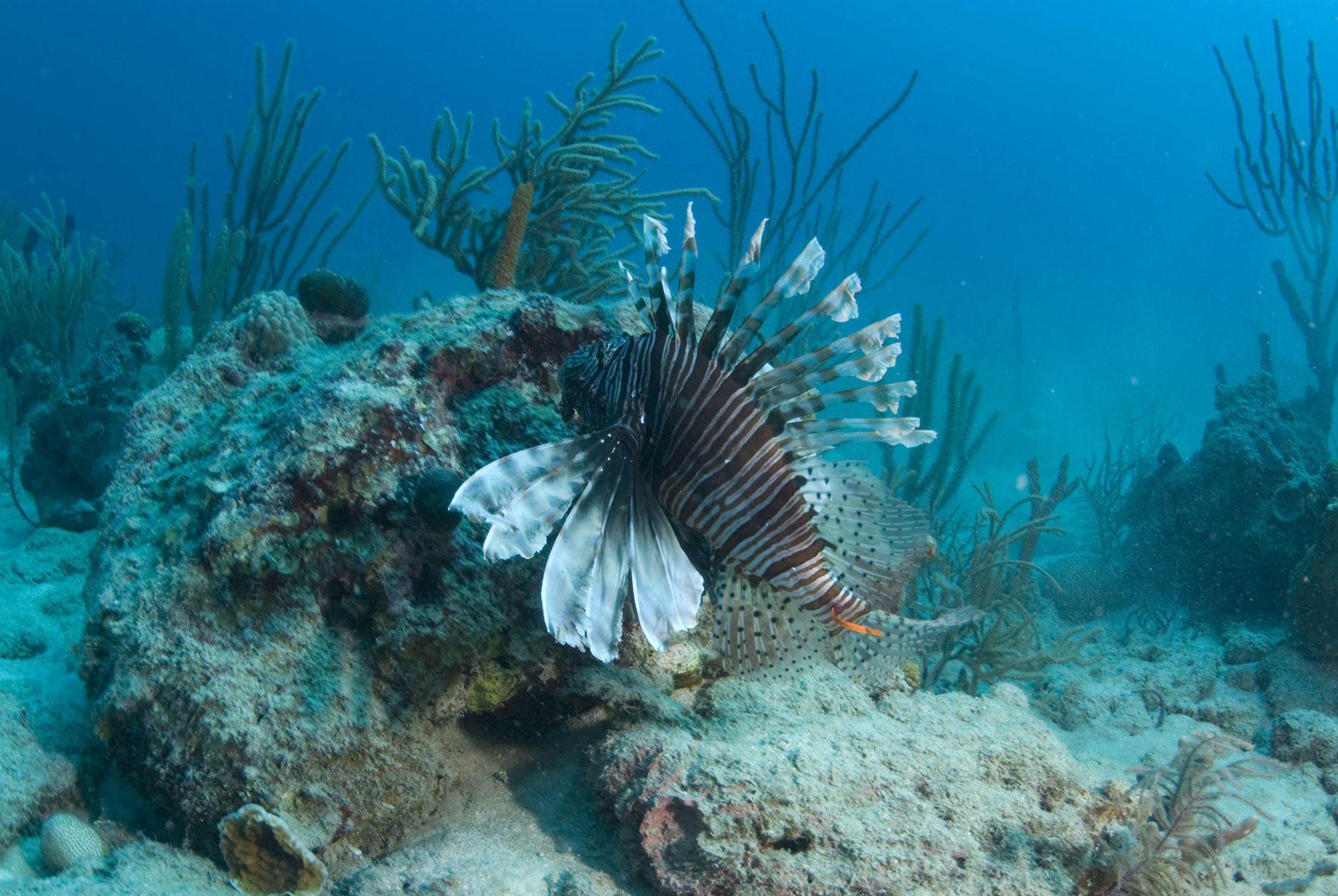Lionfish Research On St. Croix Gets a Boost With a Disaster Recovery Grant
VI-EPSCoR researcher Dr. Bernard Castillo Receives a National Academies' Gulf Research Program Award
Dr. Bernard Castillo II, Associate Professor of Chemistry at the University of the Virgin Islands, and a VI-EPSCoR-supported researcher, is one of only 11 grantees to receive funding from The Gulf Research Program (GRP) of the National Academies of Sciences, Engineering, and Medicine.
Marcia Taylor carefully captures a lionfish for tagging.
“Our team is very excited to receive the Disaster Recovery Grant; with hurricanes Irma and Maria severely delaying and impacting this study, funds from this grant will help us re-sample and complete the project.”
Dr. Castillo was awarded $38,053 to assist with the recovery of his lionfish research project. This project examines factors affecting the movement and colonization of areas by the invasive lionfish species in St. Croix, USVI. The impact from Hurricane Irma resulted in lost equipment and necessitated new data collection due to major disruptions within the study areas. Both of these contributed to the project’s delay. Master of Marine & Environmental Studies (MMES) student D. Elizabeth Smith has been working closely with Dr. Castillo on this research effort.
“As the 2018 hurricane season gets underway, it’s a good time to remember the significant impacts from last year’s hurricanes and that the recovery process is still underway for many. In the aftermaths of Harvey and Irma last year, the GRP set out to contribute what it could to help that recovery through a unique niche of offering grants to help scientists whose research was affected by the hurricanes pick up the pieces and carry on with work in areas that could ultimately help the Gulf region build resilience against future hurricanes.”
D. Elizabeth Smith is identifying, counting, and sizing, native fish in addition to lionfish. Photo by Kynoch Reale-Munroe.
Eleven grant awards totaling $341,283 were announced in April for the first cycle of the GRP’s Scientific Research Disaster Recovery Grants. A total of 22 awards amounting to $628,848 have been made for both cycles.
The National Academies' Gulf Research Program is an independent, science-based program founded in 2013 as part of legal settlements with the companies involved in the 2010 Deepwater Horizon disaster. It seeks to enhance offshore energy system safety and protect human health and the environment by catalyzing advances in science, practice, and capacity to generate long-term benefits for the Gulf of Mexico region and the nation. The program has $500 million for use over 30 years to fund grants, fellowships, and other activities in the areas of research and development, education and training, and monitoring and synthesis. Visit www.national-academies.org/gulf to learn more.
The orange streamer tag seen here helps researchers identify this lionfish in followup surveys. Photo by Lad Akins.
The National Academies of Sciences, Engineering, and Medicine are private, nonprofit institutions that provide independent, objective analysis and advice to the nation to solve complex problems and inform public policy decisions related to science, technology, and medicine. The Academies operate under an 1863 congressional charter to the National Academy of Sciences, signed by President Lincoln. For more information, visit www.national-academies.org. You can read more about Dr. Castillo’s lionfish project, and some interesting post-hurricane findings, in the VI-EPSCoR Spring Newsletter.



